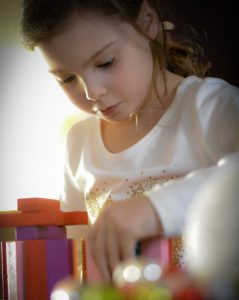Occupational Therapy: What You Need to Know
 Occupational therapy, or OT, can help people of all ages do the activities of daily living (ADLs) they struggle to do. Occupational therapy for children can lead to big benefits, especially for kids with learning and attention issues.
Occupational therapy, or OT, can help people of all ages do the activities of daily living (ADLs) they struggle to do. Occupational therapy for children can lead to big benefits, especially for kids with learning and attention issues.
OT can help kids who struggle with everyday fine and gross motor tasks like using a toothbrush, writing on a chalkboard and organizing a backpack. It can also help kids who struggle with self-regulation and sensory processing issues.
What Is Occupational Therapy
OT uses exercises, activities, strategies and accommodations to help kids develop the skills they need to become more independent.
If you’ve noticed that your child is missing certain developmental milestones, OT could help. Occupational therapists can work with kids on many different types of activities. Here are some examples:
- Self-care or activities of daily living (brushing teeth, buttoning clothes, using eating utensils)
- Hand-eye coordination (writing on a classroom whiteboard, copying in a notebook what the teacher writes on the board)
- Fine motor skills (grasping and controlling a pencil, using scissors)
- Gross motor skills (doing jumping jacks, working on core muscle strength for sitting posture)
- Planning and organization (helping a teen plan a trip to his locker to swap books or gym clothes for the next class period, using a graphic organizer for writing)
- Sensory responses (helping kids with sensory processing issues respond to sensory input in more comfortable ways)
There are lots of benefits of OT for children. And the sooner a child starts OT, the more effective it tends to be. Some kids learn to concentrate better and complete their schoolwork with more success. Others have increased self-confidence as they learn to do more tasks on their own.
How OT Can Help Kids With Learning and Attention Issues
If your child has certain learning and attention issues, OT may be a good option. It can help kids become more independent and better at completing tasks. This is especially true for young children.
Occupational therapists can help kids who struggle with fine and gross motor skills, like kids with dyspraxia.
- To practice fine motor skills, kids may pick up items with tweezers to help build strength and control. They may cut out things with scissors to help with hand-dominance issues.
- To build gross motor skills like balance and coordination, kids may do jumping jacks, catch balls of different sizes or run obstacle courses.
OT can also be a big help for kids with sensory processing issues. Some kids with sensory issues overreact to outside stimulation and become overwhelmed and hyperactive. Others are underreactive and seek out sensory stimulation.
Occupational therapy may also help kids with other learning and attention issues like dyslexia, visual processing issues, executive functioning issues and dysgraphia.
Excerpted from “Occupational Therapy: What You Need to Know” on Understood. Read the full article to learn more about the benefits of OT for children and how to find an occupational therapist for your child.
Source: Understood.org | Occupational Therapy: What You Need to Know, https://www.understood.org/en/learning-attention-issues/treatments-approaches/therapies/occupational-therapy-what-you-need-to-know | Copyright © 2014–2019 Understood.org USA LLC
To schedule an evaluation or to get advice about your child’s challenges, call or email a CHC Care Coordinator at 650.688.3625 or careteam@chconline.org





